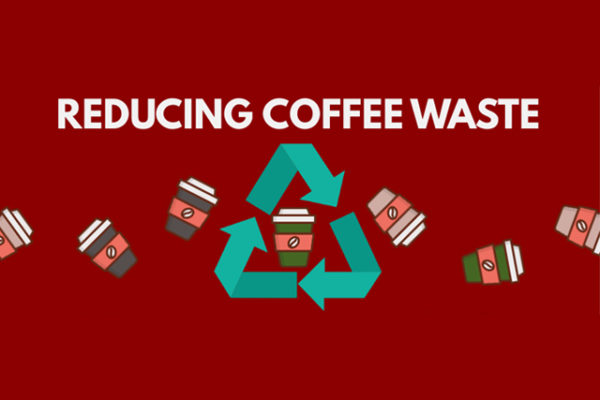Reducing Coffee Waste

The UK has set itself a target of net-zero carbon emissions by 2050 which will likely see the nation change dramatically across a number of industries as we attempt to make ourselves carbon neutral in the next thirty years. One huge issue which is quite close to our heart is the fallout from coffee waste and the contributions to pollution and landfill use from various forms of coffee by-products.
The Rolling Bean is passionate about reducing waste and making our quality coffees as harmless to the planet as possible. To ensure this, all our cups and lids are made from PLA – a plastic made from corn resin which is biodegradable and compostable. We also use only organic milk and offer oat milk as a dairy-free alternative which helps shrink our carbon footprint even further.
However, we understand that in shops and homes around the UK, people’s love for coffee can be highly damaging to the environment. For this reason, we collected a number of statistics on different kinds of coffee waste to highlight just how far we still have to go to help the nation towards zero carbon and zero waste. There are 41.7 million single-use coffee pods not recycled around the world every day and the number of coffee cups littered a day stands at around 500,000.
Takeaway coffee cups pose a particular challenge because, although they appear to be paper cups, they are usually made from a paper-plastic bond. This is helpful for insulation but can seriously affect recycling streams if disposed of incorrectly. Inclusion of these cups with other paper materials in kerbside collections can often result in the entire batch being rejected for decontamination, meaning perfectly recyclable materials are instead sent to landfill where they produce more greenhouse gases. Councils and recycling companies will need to identify a way to stop this from happening if we’re to reduce our waste as soon as possible.
Though we wanted to highlight the struggle we still face against coffee waste, we’ve also included positive notes on coffee recycling to highlight the hard work the UK is doing to tackle its waste problems. Eco-anxiety and burnout will do no good in the fight against the climate emergency so remembering that change can be made and that small changes make a difference is an important part of the process.


Love this infographic!